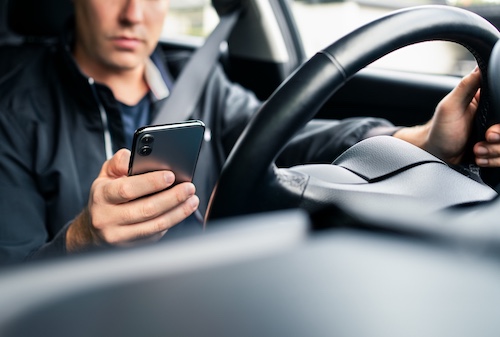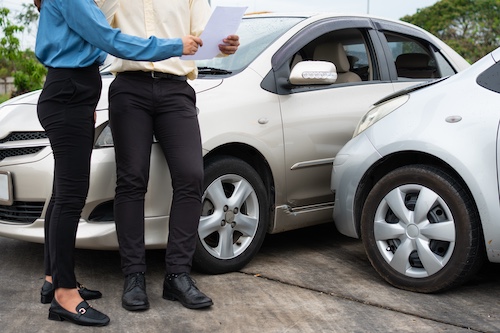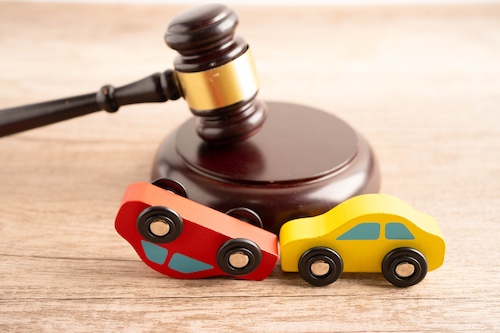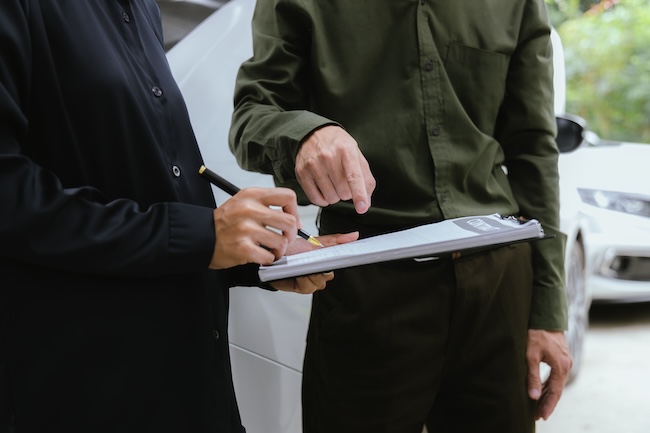Rideshare Accident Liability in North Carolina
Rideshare accident liability can be more complicated than in traditional car accidents. In North Carolina, determining who is responsible depends on factors such as the rideshare driver’s status, the involvement of the rideshare company, and the insurance coverage in place at the time of the crash. Whether you are a passenger, another driver, or a pedestrian, understanding how liability works is essential for protecting your rights and pursuing fair compensation.
In this blog, we explain how rideshare accident liability works in North Carolina, outline the insurance coverage rules, and share the steps to take after a crash, and we discuss why working with an experienced Raleigh rideshare accident lawyer can help protect your rights and improve your chances of receiving fair compensation.
How Rideshare Accidents Differ from Traditional Car Accidents
Rideshare accidents involve different rules and insurance coverage compared to traditional car accidents. Understanding these differences helps injured parties know who may be responsible and what coverage may apply.
Personal Vehicles Used for Commercial Purposes
In rideshare accidents, the driver uses a personal vehicle to provide rides for a fee through a rideshare app like Uber or Lyft. This changes how liability coverage works. A personal auto insurance policy may not apply when the driver is working for a rideshare company. The rideshare company’s insurance policy may provide coverage instead.
Driver Status at the Time of the Accident
The rideshare driver’s status when the accident occurs is critical for determining liability. If the driver is not logged into the app, only their personal insurance applies. If the driver is logged in and waiting for a ride request, limited liability coverage from the rideshare company’s insurance may apply. If the driver is en route to pick up a passenger or has a passenger in the vehicle, the rideshare company’s commercial insurance coverage is typically in effect.
Multiple Parties and Insurance Coverage
A rideshare accident can involve multiple parties including the rideshare driver, other drivers, and the rideshare company. Each may have separate insurance coverage. This can make the process of determining liability and filing an insurance claim more complex than in traditional car accidents. The injured party may need to work with multiple insurance providers to recover fair compensation for medical expenses, lost wages, and property damage.
Determining Liability in a North Carolina Rideshare Accident
Liability in a North Carolina rideshare accident depends on who caused the crash, the driver’s status, and which insurance coverage applies. Identifying the responsible parties is essential for pursuing compensation.
Responsible Parties in a Rideshare Accident
A rideshare accident can involve several responsible parties. The rideshare driver may be liable if driver negligence such as distracted driving or reckless driving caused the crash. The rideshare company may share liability under certain conditions. Other drivers or third parties may also be at fault if their actions contributed to the accident.
Impact of Driver Status
The rideshare driver’s status at the time of the accident affects which insurance policy applies. If the driver is not logged into the rideshare app, their personal auto insurance covers the incident. If the driver is logged into the app but has not accepted a ride request, limited third party liability coverage from the rideshare company may apply. If the driver is en route to pick up a passenger or transporting one, the rideshare company’s commercial insurance coverage is usually active.
North Carolina Contributory Negligence Rule
North Carolina follows a contributory negligence rule. This means that if the injured party is even slightly at fault, they may not be able to recover compensation. This rule makes proving fault and liability especially important in rideshare accident cases. A thorough investigation is often required to show the rideshare driver or another party was entirely responsible.
Role of Insurance Coverage
Liability coverage in rideshare accidents often involves both personal insurance policies and rideshare company insurance. Determining which policy applies requires reviewing the driver’s status, the rideshare company’s policy, and any third-party liability insurance. This process is often more involved than in traditional car accidents and may require legal assistance to ensure the injured party receives fair compensation.
Insurance Coverage in Rideshare Accidents
Insurance coverage in rideshare accidents depends on the driver’s status and the policies held by the driver, the rideshare company, and other parties involved. Understanding these rules helps injured parties know where to seek compensation.
Personal Auto Insurance vs Rideshare Company Insurance
Most personal auto insurance policies do not cover accidents that occur while the driver is using their vehicle for paid rideshare services. When a rideshare driver is working, the rideshare company’s insurance policy may provide coverage. This can include liability coverage for bodily injury and property damage, but only when the driver is logged into the rideshare app or transporting a passenger.
Coverage When Not in Driver Mode
If a rideshare driver is not logged into the app at the time of the accident, only their personal insurance policy applies. In this situation, the accident is treated like a traditional car accident. The rideshare company’s insurance coverage does not apply.
Coverage While Waiting for a Ride Request
When a driver is logged into the app but has not accepted a ride request, limited third party liability coverage from the rideshare company may be available. This coverage is usually lower than full commercial insurance limits and may not cover all damages. The driver’s personal auto insurance may still be required to pay part of the claim.
Coverage While En Route or Transporting a Passenger
If the rideshare driver is en route to pick up a passenger or already has one in the rideshare vehicle, the rideshare company’s full commercial liability coverage is usually in effect. This typically includes higher limits for bodily injury, property damage, and may include uninsured or underinsured motorist coverage.
Multiple Policies and Insurance Providers
A rideshare accident often involves more than one insurance provider. Claims may need to be filed against the rideshare company’s policy, the driver’s personal insurance, and the insurance of other drivers involved. Coordinating between multiple policies can be challenging, especially when insurance providers dispute who is responsible.
Steps to Take After a Rideshare Accident
Taking the right steps after a rideshare accident can protect your health, preserve evidence, and strengthen your claim for compensation.
Seek Medical Attention Immediately
Your health comes first. Seek medical attention right away, even if injuries seem minor. Some injuries may not appear until hours or days later. Medical records will also help support your personal injury claim.
Call 911 and Report the Accident
Notify law enforcement and request that a police report be completed. The police report will document the accident scene, the vehicles involved, and statements from parties and witnesses. This report is a key piece of evidence in rideshare accident liability cases.
Gather Information from All Parties Involved
Collect the rideshare driver’s name, contact information, personal insurance details, and rideshare company affiliation. Obtain information from any other drivers or parties involved. Take photos of the accident scene, vehicle damage, and visible injuries.
Notify Insurance Providers
Report the accident to your insurance company promptly. The rideshare driver should also report it to their personal insurance provider and the rideshare company. This step helps establish the timeline of events and prevents disputes about when the accident occurred.
Contact a Rideshare Accident Attorney Before Speaking Further
Before providing detailed statements to the rideshare company or their insurance provider, speak with a rideshare accident attorney. An attorney can guide you through the insurance claim process, identify responsible parties, and work to secure fair compensation for medical expenses, lost wages, and property damage.
Consult With Mogy Law About Your Rideshare Accident ASAP!
If you have been injured in a rideshare accident, our team at Mogy Law is ready to stand by your side and fight for the compensation you deserve. We understand the challenges of rideshare accident liability in North Carolina and know how to deal with insurance providers and responsible parties. Let an experienced Raleigh rideshare accident lawyer from our firm guide you through every step of your claim.
Contact us at (901) 443-9133 for a free case consultation today!








